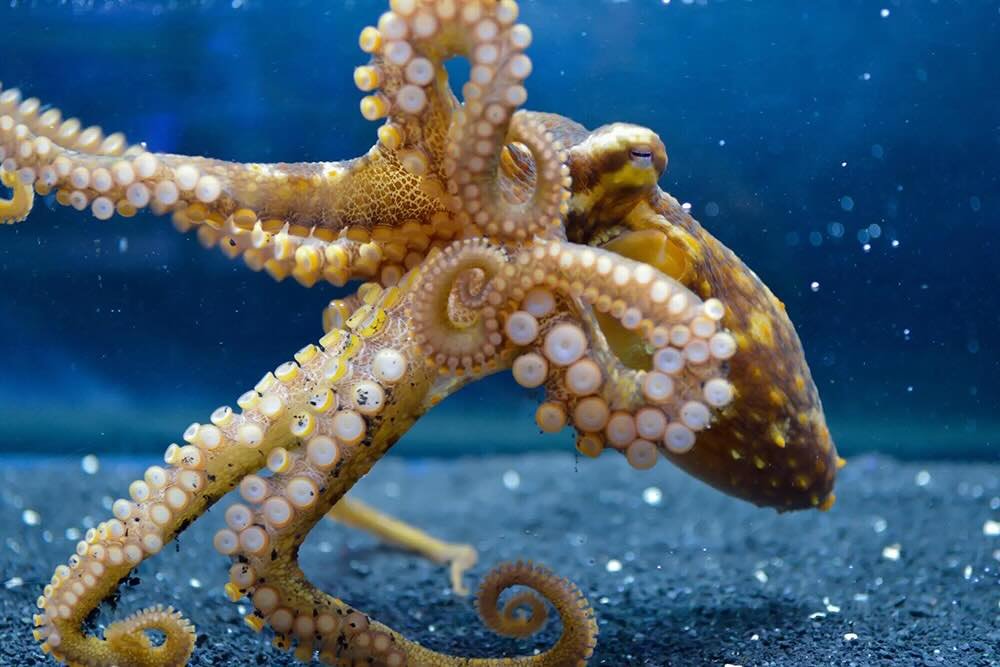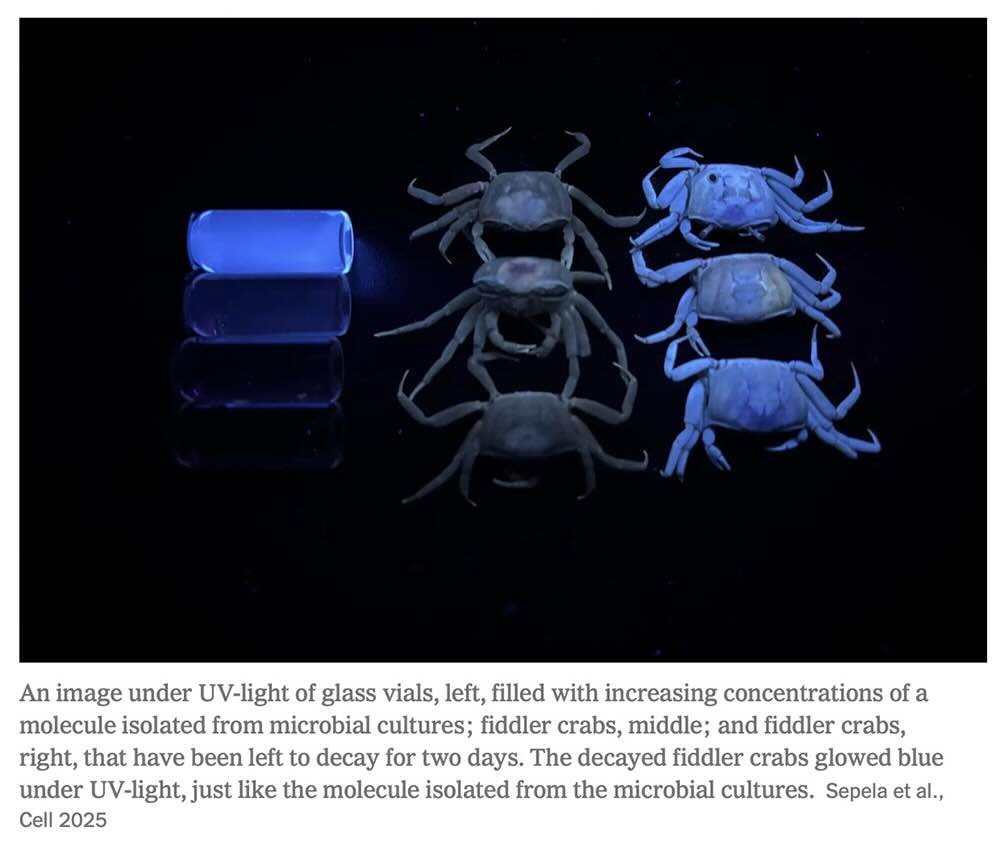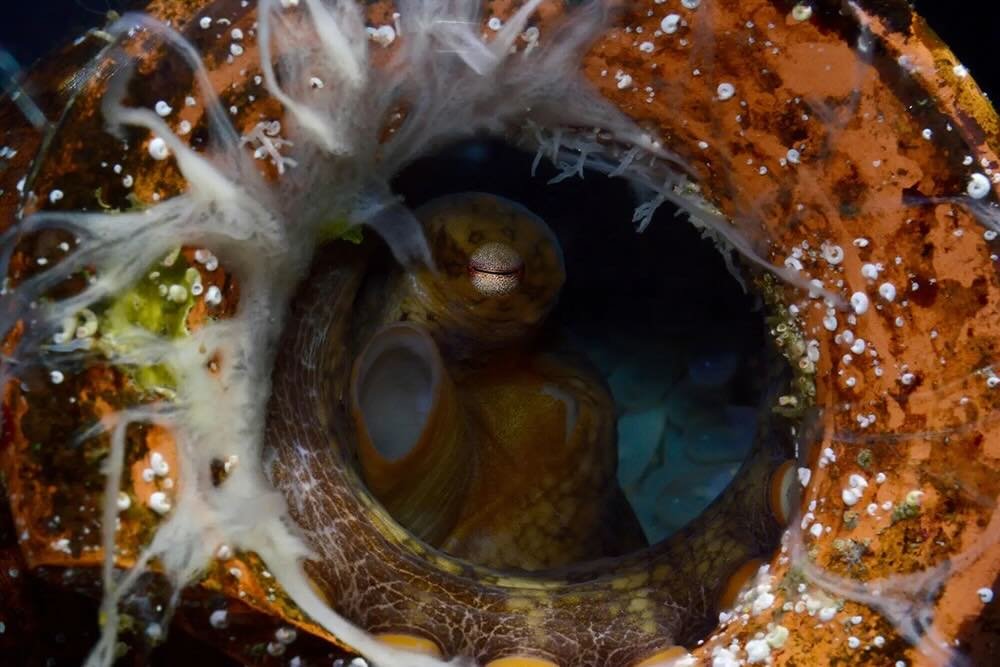Eight Arms to Taste the Microbiome
How do octopuses explore their environment?
What did scientists discover about the octopus's arms?
What is a microbiome?
Why is this discovery important?
How many neurons are in an octopus’s arms?
What did the scientists grow in the lab?
What do the microbes do that octopuses can detect?
Why might this ability be useful for octopuses?
How is this like tasting spoiled milk?
What do scientists think microbes might be for animals in general?
How octopuses use their arms to sense invisible worlds
When you think of an octopus, you might picture its eight long arms moving quietly through the ocean. These amazing creatures are known for being smart, flexible, and full of surprises.
Now, scientists have discovered something new and exciting: octopuses can “taste” the surfaces they touch—not just feel them, but actually detect tiny living things on them.
This discovery shows that octopuses are even more amazing than we thought.
Tasting with Their Arms
Octopuses don’t just rely on their eyes to find food. Their eyes are helpful, but they can’t see into small dark spaces where prey might hide. So, an octopus uses its arms to explore cracks, rocks, and hidden corners of the ocean.
Scientists already knew the arms of an octopus are filled with powerful tools for sensing the world. Each arm has hundreds of suckers, and each sucker has more than 10,000 special sensors that can detect chemicals. These sensors help the octopus “taste” what it touches.
Inside the arms are about 500 million neurons—tiny brain cells—that help send messages to the octopus’s main brain. These cells help the octopus figure out what it’s touching. That’s how it can tell the difference between a rock and a crab, or between a healthy egg and a sick one.
But even with all this knowledge, scientists still had questions. What, exactly, are the octopuses tasting? How can they tell when something is safe to eat or when it might be harmful?
The Microbiome Mystery
Dr. Rebecka Sepela, a scientist at Harvard University, wanted to find out more.
She and her team discovered something strange: along the arms of the octopus, there were 26 types of receptors (special parts that receive signals) that didn’t have a known purpose. These receptors didn’t respond to the usual chemicals floating in the water. That made her wonder: What were they sensing?
The team had an idea. Maybe these receptors were tuned to something found only on surfaces—something too small for humans to see. That “something” turned out to be the microbiome.
A microbiome is a community of tiny living things called microbes that live on surfaces, in the water, and even inside other creatures.
So the scientists tested the idea. They collected microbes from both healthy and sick crabs, as well as from healthy and dying octopus eggs. They grew the microbes in the lab and tested 300 different types to see how they affected the octopus’s special receptors.
The results were surprising.
Only certain microbes could turn the receptors “on,” and those microbes were more common on rotting crabs and dying eggs.
This showed that the octopus was reacting to microbes—tiny life forms—on the surfaces it touched. These microbes were releasing special chemicals, and the octopus was “tasting” those chemicals through its arms.
Why This Matters
Dr. Nicholas Bellono, who leads the lab where Dr. Sepela works, explained that microbes are always collecting information from the surfaces they live on. Then they release chemicals into the water. Those chemicals are what the octopus is detecting.
This is a lot like how we taste sour milk. When milk goes bad, microbes inside it break it down, and that sour taste is how we know it’s spoiled.
Similarly, the octopus can “taste” when something is bad for it—like a rotten crab—just by touching it.
Insects, like ants or bees, are usually drawn to things they like the smell of. But octopuses are doing something different: they seem to be more tuned in to what they don’t like. If the octopus doesn’t sense any dangerous microbes, it knows the food might be safe to eat.
Bigger Questions
Dr. Marcus Stensmyr, a scientist in Sweden, says this raises many new questions.
If octopuses use microbes to tell the difference between things they like and don’t like, do they also use them to talk to each other?
Could they use microbes to help choose a mate?
Could this help protect them from getting sick?
Dr. Chelsea Bennice, a scientist in Florida who studies octopuses, believes that the answer could be yes. She says this ability might help octopuses avoid diseases—something that is becoming more important as the ocean gets warmer.
Microbes: The Secret Language of Life
The findings in this study are not just important for understanding octopuses. They also tell us something big about life in general.
All animals live in a world full of microbes. In fact, scientists think that microbes have helped shape life on Earth from the very beginning.
Dr. Bellono believes that microbes might be part of a “secret language” that many living things use to understand their surroundings.
It’s possible that animals all over the world—maybe even humans—are using microbes to sense, react, and make decisions without even knowing it.
Science is just starting to discover how much microbes affect the lives of bigger creatures. There’s still so much to learn.
Octopus – A sea creature with eight arms and a soft body.
Microbiome – A group of tiny living things (like bacteria) that live on or in other living things.
Receptor – A part of the body that senses something, like smell, taste, or touch.
Neuron – A brain cell that sends messages.
Sucker – A round part on the arm of an octopus that helps it stick to surfaces.
Chemical – A substance that can cause a reaction, such as taste or smell.
Surface – The outside layer of something.
Prey – An animal that is hunted or eaten by another animal.
Rotten – Decayed or spoiled.
Toxic – Poisonous or dangerous.
Microbe – A tiny living thing that is too small to see without a microscope.
Culture (scientific) – To grow microbes in a lab to study them.
Stimuli – Things that cause a reaction, like sound, smell, or touch.
Decay – To break down or rot.
Aversive – Something that is unpleasant and makes an animal avoid it.
Evolution – The way living things change over a very long time.
Irritant – Something that causes discomfort or trouble.
Kingdom (in biology) – A big group of living things, like animals, plants, or bacteria.
Molecule – A very small particle made of atoms.
Sensory – Related to the senses (seeing, tasting, feeling, etc.).
► COMPREHENSION QUESTIONS
— please answer with complete sentences
How do octopuses explore their environment?
What did scientists discover about the octopus's arms?
What is a microbiome?
Why is this discovery important?
How many neurons are in an octopus’s arms?
What did the scientists grow in the lab?
What do the microbes do that octopuses can detect?
Why might this ability be useful for octopuses?
How is this like tasting spoiled milk?
What do scientists think microbes might be for animals in general?
► From EITHER/OR ► BOTH/AND
► FROM Right/Wrong ► Creative Combination
THESIS — Argue the case that it’s silly to study octopuses: the are so different from humans!
ANT-THESIS — Argue the case that it’s important to study octopuses.
SYN-THESIS — Creatively put these two perspectives together. (Hint: perhaps seeing differences and similarities at the same time is important?)














